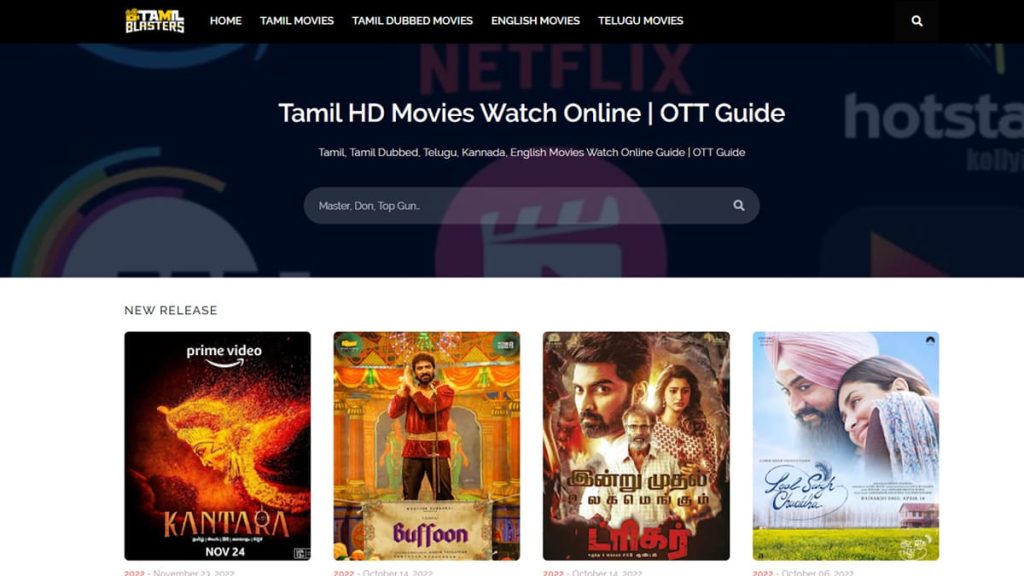Is the landscape of digital entertainment truly evolving, or are we simply navigating a maze of broken links and fleeting content? The pursuit of readily accessible, high-definition entertainment, particularly dubbed movies in languages like Tamil, Telugu, and Hindi, has become a relentless quest, yet the path often leads to dead ends and frustration.
The year is 2025. The promise of seamless streaming and effortless downloads, once championed by platforms like "Tamilblasters com," now feels like a phantom limb. The echoes of "Tamilblasters com" and similar sites resonate in the digital ether, yet the reality often contradicts the expectation. The search for specific titles, especially those offering a blend of regional languages, frequently results in disappointment, mirroring a persistent cycle of unmet needs. The relentless hunt for a reliable source, a haven for the cinephile seeking Tamil, Telugu, Hindi, and other language films in pristine HD quality, continues unabated. The very definition of "access" is being redefined in this era of intricate copyright regulations and evolving consumer preferences. The constant battle against piracy and the ever-changing technological landscape have significantly impacted the availability of content, leading to a fragmented experience for viewers. This makes accessing films difficult. The user experience is one of frustration, constant searching, and disappointment.
The frustration is compounded by the ephemeral nature of many online resources. A website that promises a vast library of movies can vanish overnight, leaving users stranded. Search queries that seemed promising moments ago now yield nothing, highlighting the instability of the digital environment. The repeated message, "We did not find results for:" serves as a constant reminder of the challenges.
Let's examine the recurring search patterns and the implied user intent. The searches frequently involve a combination of language, format, and desired content. The phrase "Tamil, Telugu, Hindi HD dubbed movies" suggests a user seeking a very specific type of film. The desire for HD quality underscores the evolving demands of modern viewers, while the emphasis on dubbed content points to a global audience with an interest in a wide range of cinematic experiences. The implicit need is for a centralized, reliable platform capable of delivering this content legally and ethically, as opposed to chasing fleeting links and confronting broken promises.
The core issue is a clash between supply and demand. The demand for content is exponentially increasing, driven by factors such as the growth of broadband internet, the proliferation of smart devices, and the global reach of entertainment. However, the availability of licensed content, particularly in the specialized niche of dubbed movies, often struggles to keep pace. The legal ramifications of unauthorized streaming and downloading sites have further complicated matters, casting a long shadow over the online movie ecosystem.
To navigate this challenging environment, it is essential to consider the evolution of content consumption. The rise of streaming services, although offering curated libraries, has not fully addressed the needs of those searching for a broader range of content. The limitations of these services include regional restrictions, and the unavailability of older or niche films. The user, therefore, is compelled to look elsewhere, which increases the chances of encountering unreliable sources.
The concept of "access" has shifted from a simple matter of downloading a file to a more complex equation. The focus on finding legally available resources, such as legitimate streaming services, has become paramount. The user is moving towards understanding the intricacies of copyright, and the need to support the movie industry in an ethical manner.
The frequent "Check spelling or type a new query" suggestions from search engines point to the challenge in phrasing, and also the ever-shifting nature of search engine algorithms. The user must refine their search terms, understand the limitations of search results, and adjust their expectations.
The quest for access to movies such as these, in languages such as these, is ongoing. In a world of rapidly changing technology, the search for easy ways to watch films will continue. Consumers must be patient, cautious, and stay updated with the latest in the legal streaming world.
Consider the following points to further understand the scenario:
- Language Preference: The emphasis on Tamil, Telugu, and Hindi indicates a user seeking content in specific regional languages.
- Quality Demand: The phrase "HD dubbed movies" highlights the modern expectation for high-quality viewing.
- Content Availability: The consistent failure to find results suggests that the desired content is not readily available.
- Search Strategy: Users are repeatedly entering search terms in hope of finding content.
The issue isn't just about finding a specific movie; it's about finding a reliable and trustworthy source that can satisfy the needs of a global audience. While illegal and unsanctioned websites often appear in the search results, users must ultimately look to legal channels.


